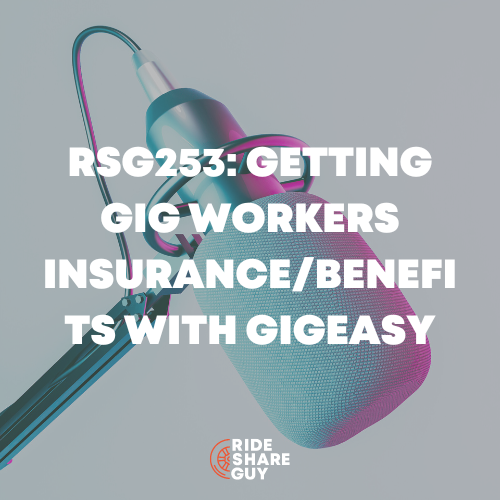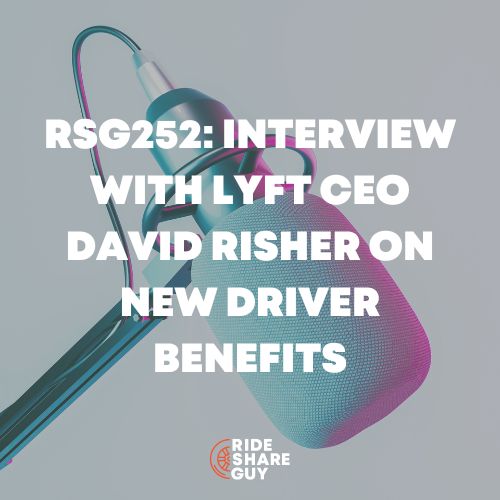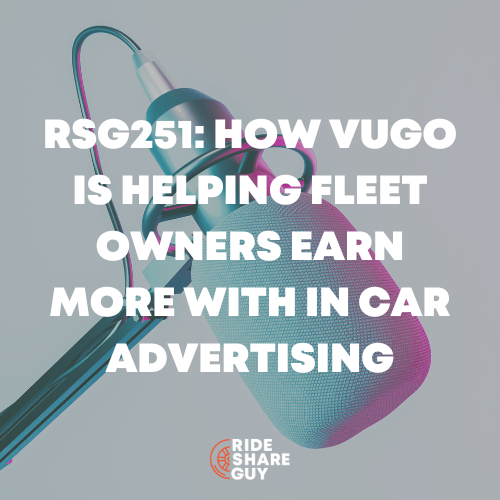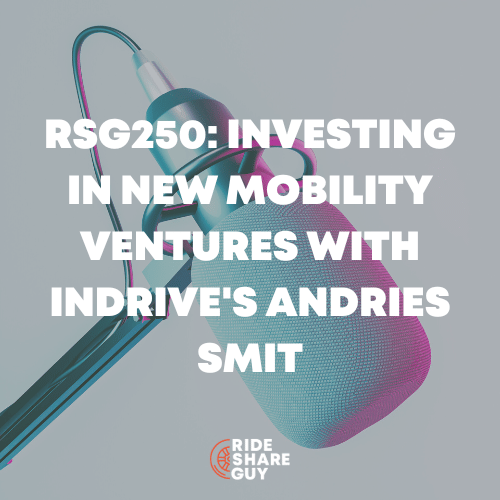One of the toughest parts about studying a company like Uber is variability – driver experience, pay, satisfaction, etc. all vary greatly depending on which drivers you talk to. This means you’d have to talk to a wide variety of drivers to really get a pulse on what they’re thinking. In this episode, we talk to someone who did just that, and we’ll get a deeper understanding of the way platforms like Uber and Lyft engage with workers.
Get your first audiobook FREE when you sign up with a 30 day trial of Audible! Sign up with Audible using our link to receive your first audiobook free here.
If you’d like to read a transcript of this podcast, please click here.
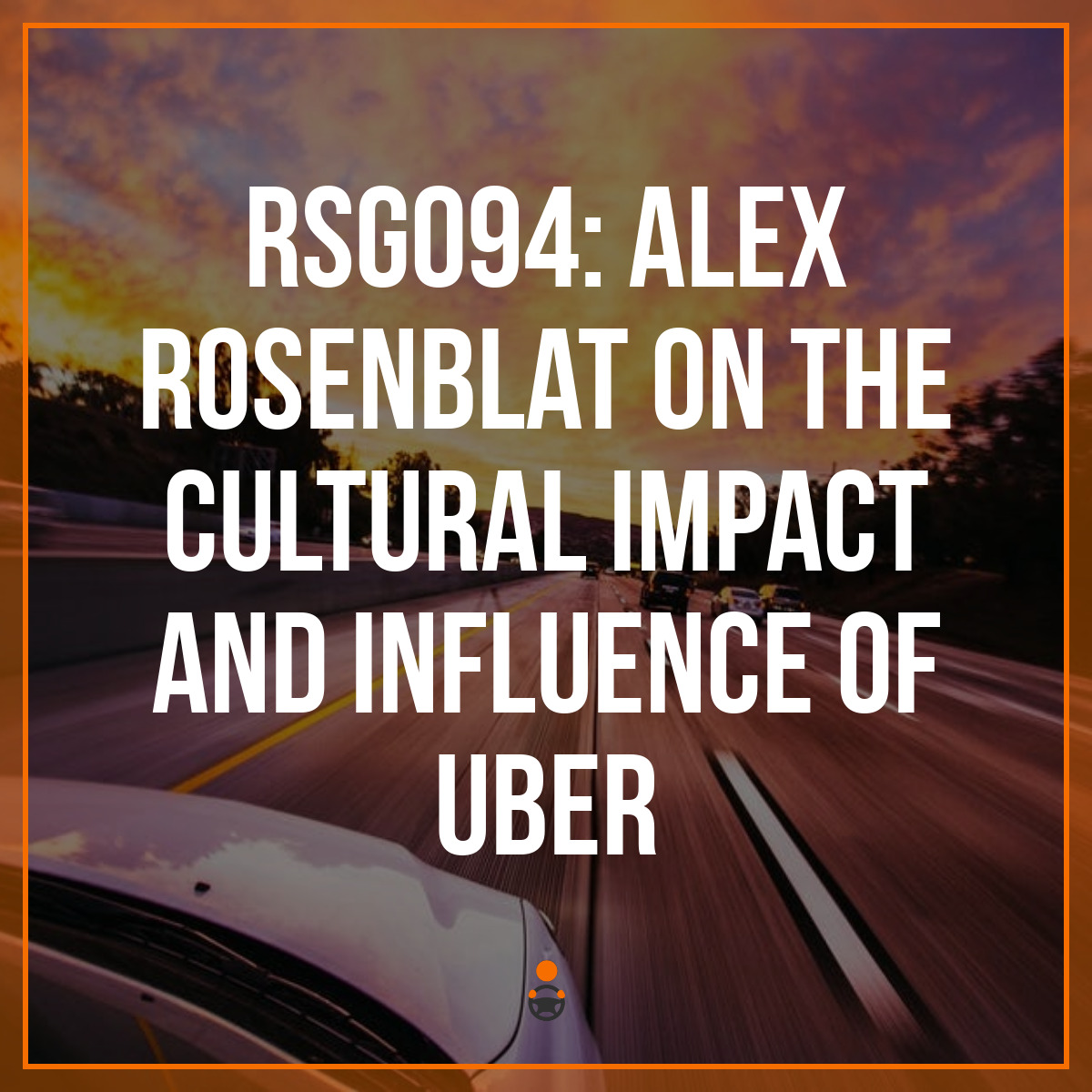
Intro
- Today I’m chatting with Alex Rosenblat, a returning guest on RSG and author of the book Uberland
- Alex has been researching and interviewing hundreds of drivers over the last 5 years, about as long as RSG has existed, which is rare in this industry
- Alex does a great job of covering the issues surrounding Uber and Lyft, highlighting and explaining them to the general public (and drivers)
- Stick around because we’re doing a giveaway of the book!
- Get your first audiobook FREE when you sign up with a 30 day trial of Audible! Sign up with Audible using our link to receive your first audiobook free here.
Interview with Alex Rosenblat
- Alex Rosenblat is a technology ethnographer and the author of Uberland: How Algorithms Are Rewriting the Rules of Work.
- She’s also a researcher at the Data & Society Research Institute
- Spoke with 1000s of drivers over the course of writing the book: one driver in particular, Fernando, stuck out to her – he became really jaded as a driver
- Common for some of the drivers Alex interviewed
Expectations and Realities of Being an Uber/Lyft Driver
- Many drivers don’t understand their actual pay – take home pay after car expenses, after taxes, etc.
- Good job/bad job comparison – might make $10-14/hr, but the flexibility is why many drivers still prefer rideshare driving to working at a fast food job
- Rideshare driving is like running a business – but this can be a shock to many drivers
Driver Classification Lawsuits
- The misclassification of drivers as independent contractors discussion (and lawsuits) have been going around for years, lawsuits filed around the world
- Political will is beginning to change (NYC)
- Tech backlash
Uber’s Influence
- While the number of people who drive for Uber is very low, Uber’s impact on culture has been incredible
- Driving is very accessible, easy to get started
- Volatile, but also a good opportunity for people who need money quickly or need a job with flexibility
- Cultural idea of the value of innovation – like other tech companies (Facebook, Google, etc.)
Gamification and Manipulation of Drivers
- Uber/Lyft are tech companies – constantly adjusting settings to see what works best for them and for customers
- Upfront pricing – information asymmetry
- AI “boss” even though Uber/Lyft says “be your own boss”
Improving Driver Conditions – And Pay?
- No jobs out there that offer the flexibility that Uber/Lyft do – but this doesn’t mean the way they tweak the algorithms doesn’t affect people (seems to take away some of that flexibility)
- Improving customer service for drivers – communication often online and robotic
- Much of the improvements Uber/Lyft have done have been on the customer side
- Drivers want to feel the companies have their backs
Outro
- Big thanks to Alex for coming on the podcast, be sure to check out our interview with her before (below in show notes) plus her writing around the web
- Interested in winning your copy of Uberland? To enter, leave a review of The Rideshare Guy podcast! Then email harry@therideshareguy.com with a screenshot of your review. The first 6 people to email me their review of the podcast will win a copy of Uberland
Show Notes
- Uberland: How Algorithms Are Rewriting the Rules of Work (on Amazon)
- RSG030: Alex Rosenblat On How Much Control Uber Really Has Over Its Drivers
- How to Calculate Per Mile Earnings Instead of Per Hour
- UberlandBook.com
- AlexRosenblat.com
- Alex in the Media
- How Can Wage Theft Emerge in App-Mediated Work?
- Uber’s Phantom Cabs
- info@alexrosenblat.com
- Follow Alex on Twitter @mawnikr
- Get your first audiobook FREE when you sign up with a 30 day trial of Audible! Sign up with Audible using our link to receive your first audiobook free here.
If you’d like to read a transcript of this podcast, please click here.
-Harry @ RSG

